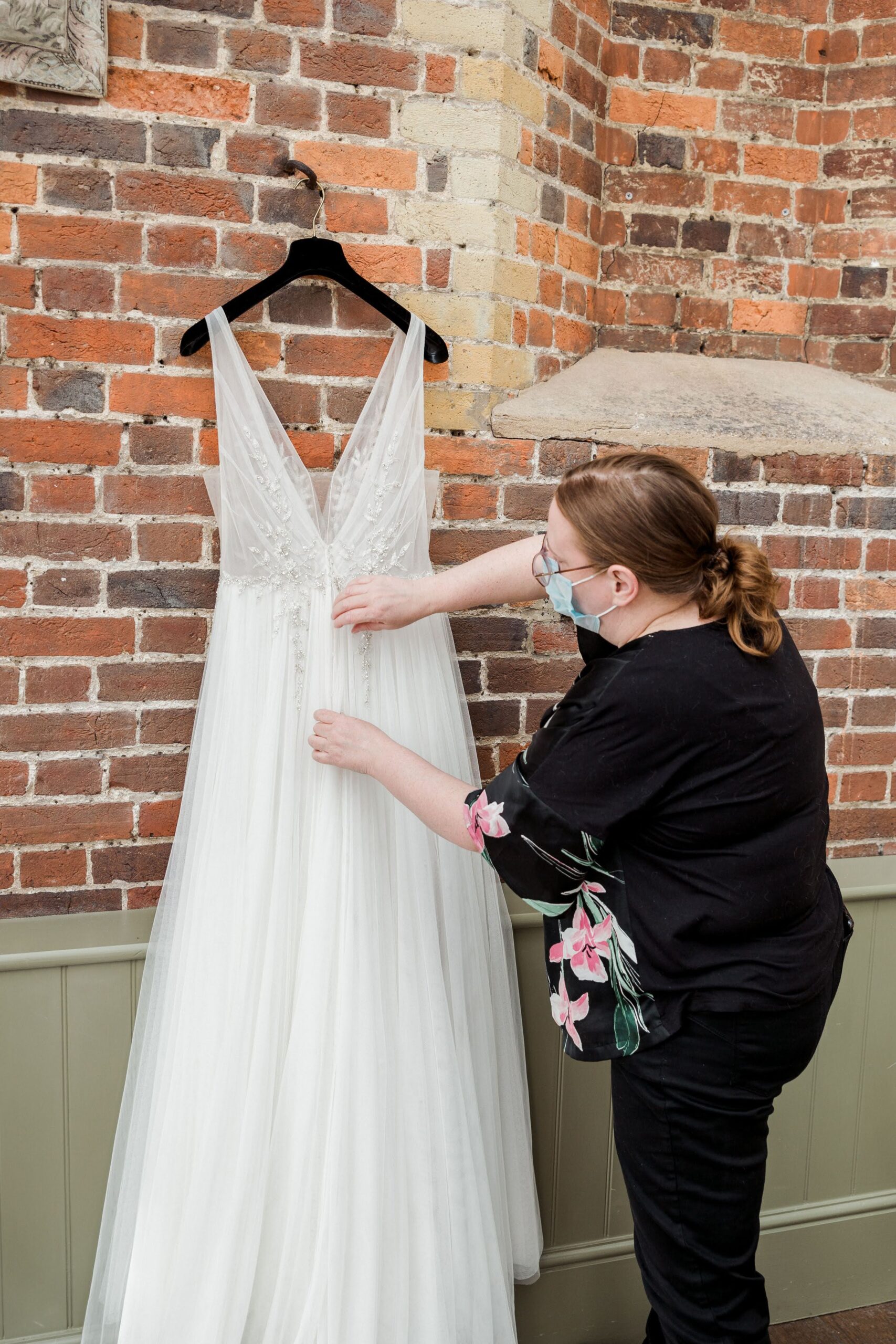
Overcoming Wedding Disasters | Vikki Richman, wedding planner
16 October 2024We all hope that wedding planning will be an easy breeze. Unfortunately, reality tends to add a bit of drama to even the best plans.
In the end you’ll hopefully look back and laugh at any problems that arise. As a wedding planner, I try to ensure that all eventualities are prepared for. In the meantime, here are some of the most common problems and what you can do should they happen to you:
1) Bride tribe letdowns – unfortunately, it’s all too common for your team to not step up as expected. They were all enthusiastic at the start but suddenly, and for no apparent reason, they’re unavailable for final fittings, or to help make up table decorations. You’ve asked if they’re alright but they’re being vague and unhelpful. There are a million reasons why this happens, and not all of them are to do with you. Firstly, don’t lose your rag. If they’ve been helpful up to this point, something may have happened that they don’t want to worry you with. Give them the space they need, let them know they can back out if they need to, and that you’re there to support them when they’re ready. In the meantime, is there someone else you trust who could help you to get things done?
2) Wedding venue changes – sometimes last-minute things happen at venues. Maybe:
- a pipe burst and the damage has yet to be repaired, or
- another booking has been made for just before your set-up time, or
- a new extension that was supposed to be finished before your wedding isn’t ready yet, or
- a previous booking has damaged part of the venue.
These things are annoying, but they happen. A good venue will invite you in for a chat to talk through any problems and their proposed solutions. Others, however, will wait until the day of the set-up … grr! It can feel like there’s nothing to be done but in many cases that’s not true. Firstly, see what the venue is offering to do. Will there be time to fix the problem before your wedding?? Do they have an alternate space you can use? If not it’s Plan B time – I can help you with that.
3) The weather in the UK is changeable – you will never be guaranteed sunshine on your wedding day in the UK, but you can be prepared for most eventualities. Rain in normal quantities is no problem, have brollies on standby and you’ll be fine. If you’re getting married outside, have a pair of white wellies available just in case. Torrential rain and marquees aren’t a great combination, but you can relieve the water pressure on the roof with a big stick (honestly!). Hot weather and marquees are also tricky for things like people and wedding cakes. Keeping tiers separate or better yet storing the cake in a cool room will preserve it. Snow brings its own transport chaos, as you can imagine!
The motto ‘be prepared’ comes into play. Check the weather forecasts. If you’re expecting inclement weather, ask the venue and your suppliers what their plans are. Can they still get to you? Is there a worst-case scenario? Do they have a Plan B/C/D? Many venues will say “if you can get to us, we’ll go ahead”. Remember they are responsible for you and your guests so if things get dangerous, they may have to make alternate arrangements.
4) Last-minute wedding guest pullouts – It’s an unfortunate part of organising any event. You can work your magic getting the guest list to the right number. This usually involves chasing all the RSVPs, and apologising to people you can’t fit in. When someone pulls out last minute, you’ve already paid for the food and drink, so what do you do? This is when it helps to have a backup list of the people you’d love to have there but can’t fit in. Tread carefully though, some people might be offended at not making the cut for the first round of guest invites. Others, usually close friends, are pretty understanding about this. If they’re already planning on joining you later in the day, they usually make themselves available to fill the gap; after all, it’s a free meal!
5) Dress disaster – hopefully you’ve had your final fitting and everything is fine. But that one bridesmaid who was never available for appointments turns up and whinges about the dress not fitting right. Or maybe a seam split getting into the car on the way to the ceremony. Surely there’s no time to fix it? An emergency kit full of pins is the answer, along with a sewing kit for running repairs. Wedding dress trains notoriously attract dirt and foliage; a good emergency kit should include a kilt pin to help hold a skirt up and a Stain Devil or chalk to help get rid of the worst marks (bearing in mind potentially fragile fabrics!). Most things can be fixed or covered over, at least temporarily. Avoiding the worst of the mud in outdoor photographs or having someone to help you avoid these hazards in the first place will definitely help save your sanity. Alternatively you may be on board with the ‘trash the dress’ trend!
6) Supplier letdowns – a reputable supplier would warn you about an issue as far in advance as possible and work with you to find a solution. However, sometimes life happens at short notice or, despite your best efforts, it turns out that a supplier wasn’t what you expected. Last-minute letdowns will often be covered by a reputable suppliers’ terms and conditions (you really should get them and read them), and their contingency policy enacted. This is especially important if your supplier works alone; how can they cover your wedding if they get sick?
Many wedding suppliers will contact their professional network to find someone they know who can look after you. In these circumstances, you should not have additional costs as your supplier will deal directly with their replacement. These same contacts can be called upon to find a replacement should a supplier let you down. DJs, bakers, photographers and, yes, even wedding planners can call on their colleagues via these professional wedding networks.

Last-minute hitches can affect even the most meticulously planned weddings. Being prepared and keeping a calm head are key to overcoming any wedding disasters. When an issue arises, it’s best to start thinking about solutions rather than getting bogged down in blame. Fix it first, then seek any necessary compensation. If you’re in any doubt, you can ask me to help you find solutions to your problems.


